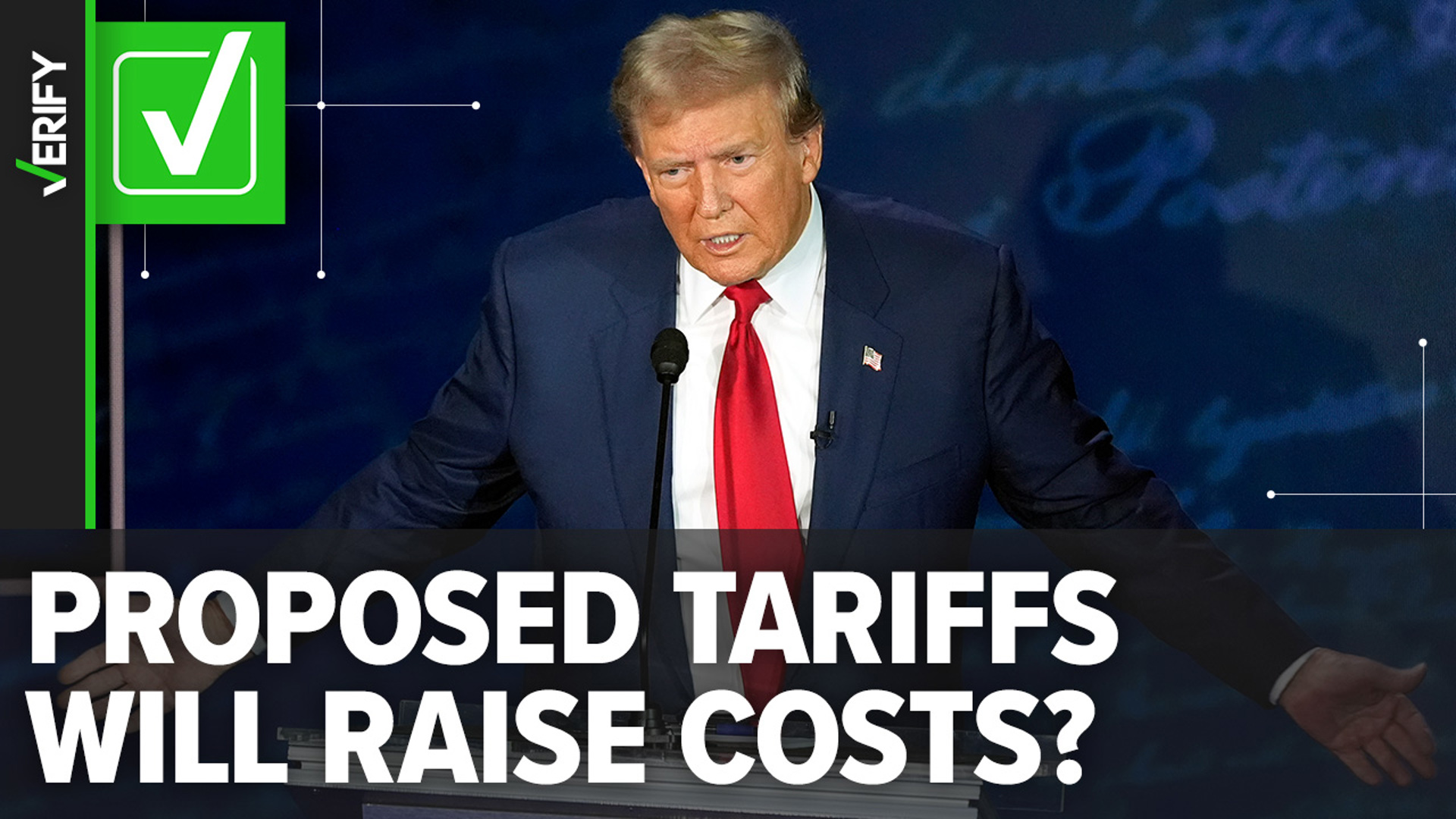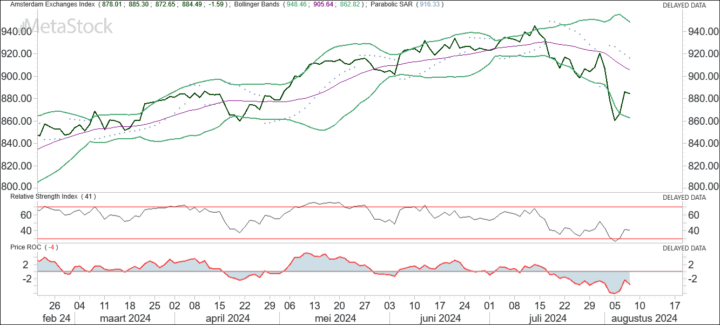Addressing Trade Tensions: Switzerland And China Propose Tariff Dialogue

Table of Contents
The Current State of Swiss-Chinese Trade Relations
Switzerland and China enjoy a substantial trade relationship, built upon existing trade agreements and substantial economic exchange. However, this relationship isn't without its challenges. While Switzerland benefits from access to the vast Chinese market, and China from Switzerland's advanced technologies and financial services, specific tariff disputes and market access issues have led to escalating trade tensions.
The volume of bilateral trade between the two nations is considerable, representing billions of dollars annually. However, imbalances and specific areas of friction exist. Recent trade disputes, particularly concerning agricultural products and certain manufactured goods, have exacerbated these tensions.
- Successful Collaborations: Switzerland and China have successfully collaborated in areas like pharmaceuticals and financial services.
- Areas of Friction: Trade disputes have focused on access to the Chinese market for Swiss agricultural products and concerns over intellectual property rights for Swiss manufacturers in China.
- Trade Imbalances: Quantifiable data on trade volume and imbalances needs further transparency to fully assess the situation. However, reports suggest a significant trade surplus for China in this relationship.
Details of the Proposed Tariff Dialogue
The initiative for a tariff dialogue between Switzerland and China is a significant step towards resolving these trade tensions. The exact details remain somewhat opaque, but it’s understood that the dialogue aims to establish a platform for constructive discussions and mutual understanding. Both the Swiss and Chinese governments have expressed commitment to this process.
The dialogue's likely format involves a series of bilateral meetings and potentially the establishment of working groups focusing on specific areas of concern. Key discussion points will include:
- Tariff Reduction: Both sides will likely explore opportunities to reduce tariffs on a range of goods.
- Non-Tariff Barriers: Eliminating or reducing non-tariff barriers, such as complex regulations and bureaucratic hurdles, is crucial for improving market access.
- Market Access: Improving market access for Swiss goods and services in China, and vice versa, is a central goal.
- Dispute Resolution: Establishing clear and effective mechanisms for resolving future trade disputes is essential to maintain stability.
Potential benefits include increased trade volume, stronger economic ties, and improved investor confidence.
- Key Participants: The dialogue will involve high-level government officials from both countries, along with representatives from relevant industries.
- Targeted Tariff Reductions: Specific areas where tariff reductions are anticipated are likely to be negotiated during the dialogue.
- Timeline and Outcomes: The timeline and specific anticipated outcomes are still being defined, but both nations have expressed a desire for a swift and productive outcome.
Potential Challenges and Obstacles to the Dialogue
While the tariff dialogue presents significant opportunities, several challenges could hinder progress. Reaching a mutually beneficial agreement requires compromise and addressing potentially difficult issues.
- Points of Contention: Disagreements could arise regarding the pace of tariff reductions, the scope of market access improvements, and the specifics of dispute resolution mechanisms.
- External Factors: Global economic slowdowns or escalating geopolitical tensions could negatively impact the dialogue's progress.
- Strategies for Overcoming Obstacles: Open communication, a commitment to finding common ground, and the involvement of industry experts will be crucial to overcome potential obstacles.
Impact on Global Trade and Economic Relations
The success of the Swiss-Chinese tariff dialogue would have significant implications for global trade relations. A successful resolution could establish a model for addressing similar trade tensions between other nations. This could contribute positively to global economic stability and foster a more predictable and cooperative international trading environment.
- Symbolic Importance: The dialogue holds symbolic importance, demonstrating the potential for constructive dialogue to overcome trade disputes and enhance international cooperation.
- Ripple Effects: A successful outcome could positively influence other bilateral trade agreements and promote a more collaborative approach to resolving trade disputes globally.
- Long-Term Implications: The long-term impact on global economic stability could be significant, promoting growth and reducing uncertainty in international markets.
The Future of Swiss-Chinese Trade Relations and Tariff Dialogue
The proposed tariff dialogue between Switzerland and China represents a pivotal moment in their bilateral economic relationship. While challenges exist, the potential benefits of a successful outcome—improved trade relations, enhanced economic growth, and a stronger global trading system—are substantial. Addressing trade tensions through dialogue and cooperation is crucial for fostering a stable and prosperous global economy.
Follow the developments in the tariff dialogue between Switzerland and China closely to understand its impact on Swiss-Chinese economic relations and the broader landscape of global trade. Stay updated on the efforts to address trade tensions between Switzerland and China as this initiative unfolds. The outcome of this dialogue will serve as a critical case study in the evolving dynamics of international trade.

Featured Posts
-
 Switzerland And China Tensions Rise Over Military Exercises
May 21, 2025
Switzerland And China Tensions Rise Over Military Exercises
May 21, 2025 -
 Abn Amro Aex Kwartaalresultaten Leiden Tot Koersstijging
May 21, 2025
Abn Amro Aex Kwartaalresultaten Leiden Tot Koersstijging
May 21, 2025 -
 The Goldbergs A Comprehensive Guide For New And Returning Fans
May 21, 2025
The Goldbergs A Comprehensive Guide For New And Returning Fans
May 21, 2025 -
 Beenie Mans It A Stream Nyc Concert Dates Tickets And More
May 21, 2025
Beenie Mans It A Stream Nyc Concert Dates Tickets And More
May 21, 2025 -
 Karin Polman Leiding Hypotheken Abn Amro Florius En Moneyou
May 21, 2025
Karin Polman Leiding Hypotheken Abn Amro Florius En Moneyou
May 21, 2025
Latest Posts
-
 Zuckerberg In A Trump Presidency Navigating Shifting Political Tides
May 21, 2025
Zuckerberg In A Trump Presidency Navigating Shifting Political Tides
May 21, 2025 -
 Chat Gpt Developer Open Ai Under Ftc Investigation
May 21, 2025
Chat Gpt Developer Open Ai Under Ftc Investigation
May 21, 2025 -
 Chainalysis And Alterya A Merger Of Blockchain And Ai Expertise
May 21, 2025
Chainalysis And Alterya A Merger Of Blockchain And Ai Expertise
May 21, 2025 -
 Wildfire Wagers Examining The La Wildfire Betting Market
May 21, 2025
Wildfire Wagers Examining The La Wildfire Betting Market
May 21, 2025 -
 Shifting Energy Landscape Taiwans Reliance On Lng Imports After Nuclear Closure
May 21, 2025
Shifting Energy Landscape Taiwans Reliance On Lng Imports After Nuclear Closure
May 21, 2025
